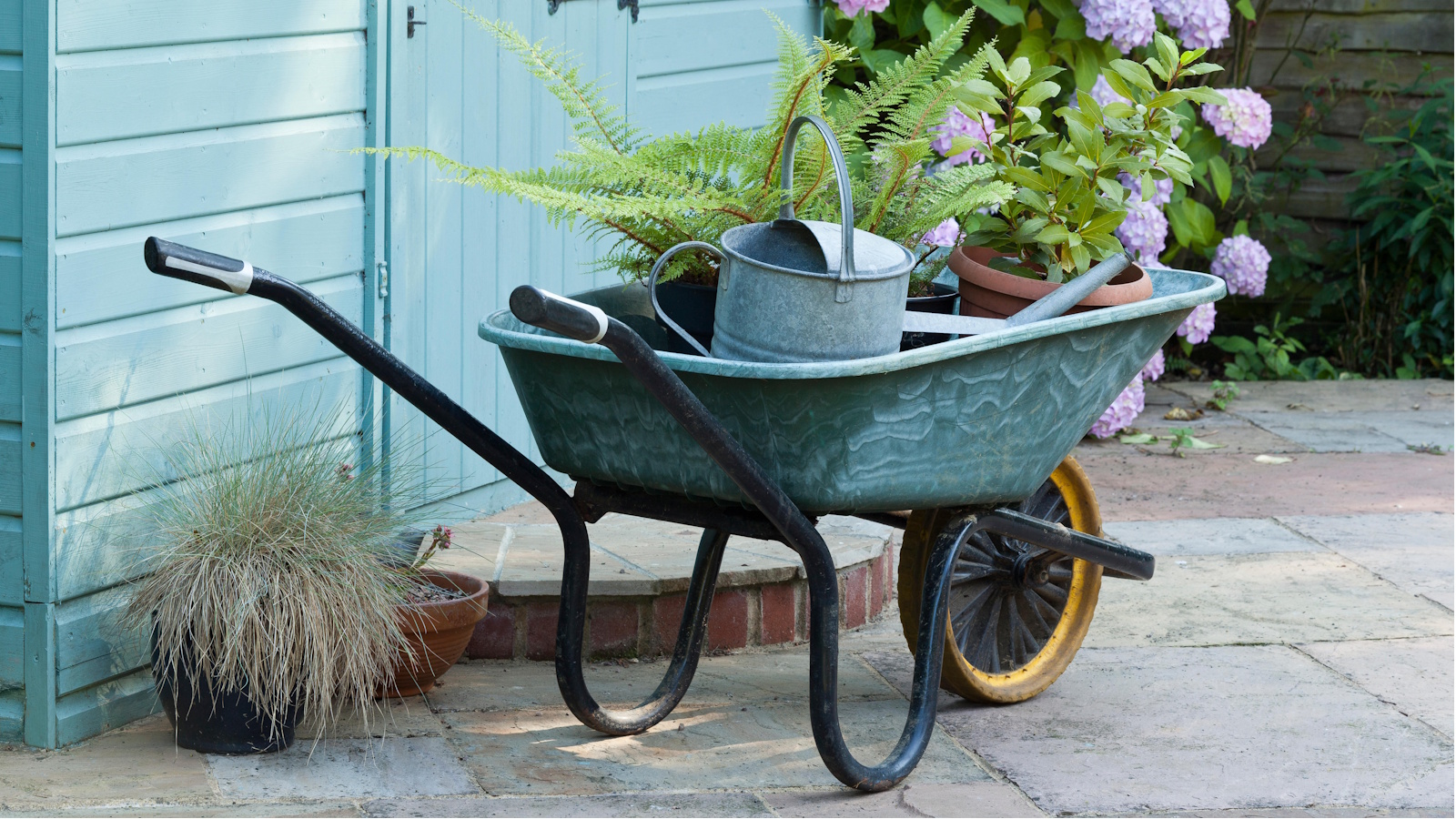
When it comes to making eco-friendly choices in the yard, it's not just about reducing waste. Opting for non-toxic gardening swaps is key to creating an outdoor space safe from PAFS, also known as forever chemicals, and other harmful toxins.
To bring your eco-friendly garden ideas together, consider what non-toxic gardening swaps you can make. From ditching toxic plastic yard tools to remove the risk of microplastics leaching into your soil, to opting for organic pest control methods, there are plenty of things you can do to remove harmful chemicals from your yard, benefitting the environment and your health alike.
Here, the Gardens team at Homes & Gardens, have put together a list of our favorite non-toxic gardening swaps. They all work just as well as the alternatives (and sometimes even better), plus they're pretty affordable to get your hands on.
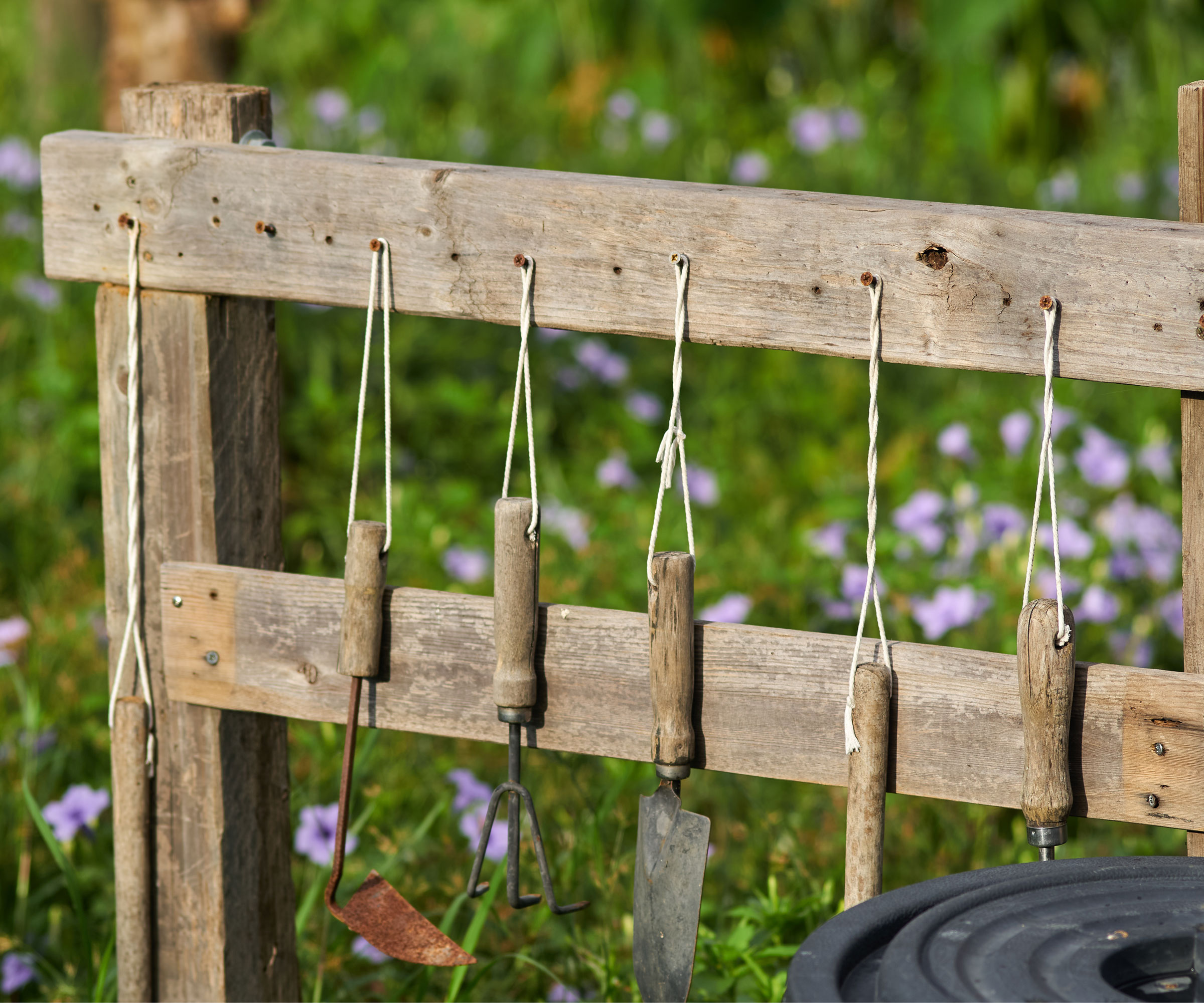
7 non-toxic gardening essentials
There are a few reasons why you might want to choose eco-friendly yard tools. Cheap plastic and synthetic rubber tools can leach microplastics and other harmful chemicals into your soil and the food you grow in your kitchen garden. Long-term, microplastics can bring many health issues to humans, including disrupting the gut microbiome. Plus, using harmful chemicals in the yard can also negatively impact the ecosystem.
That's why we recommend making these non-toxic gardening swaps - we promise it won't break the bank to do so, either:
1. Wooden plant labels
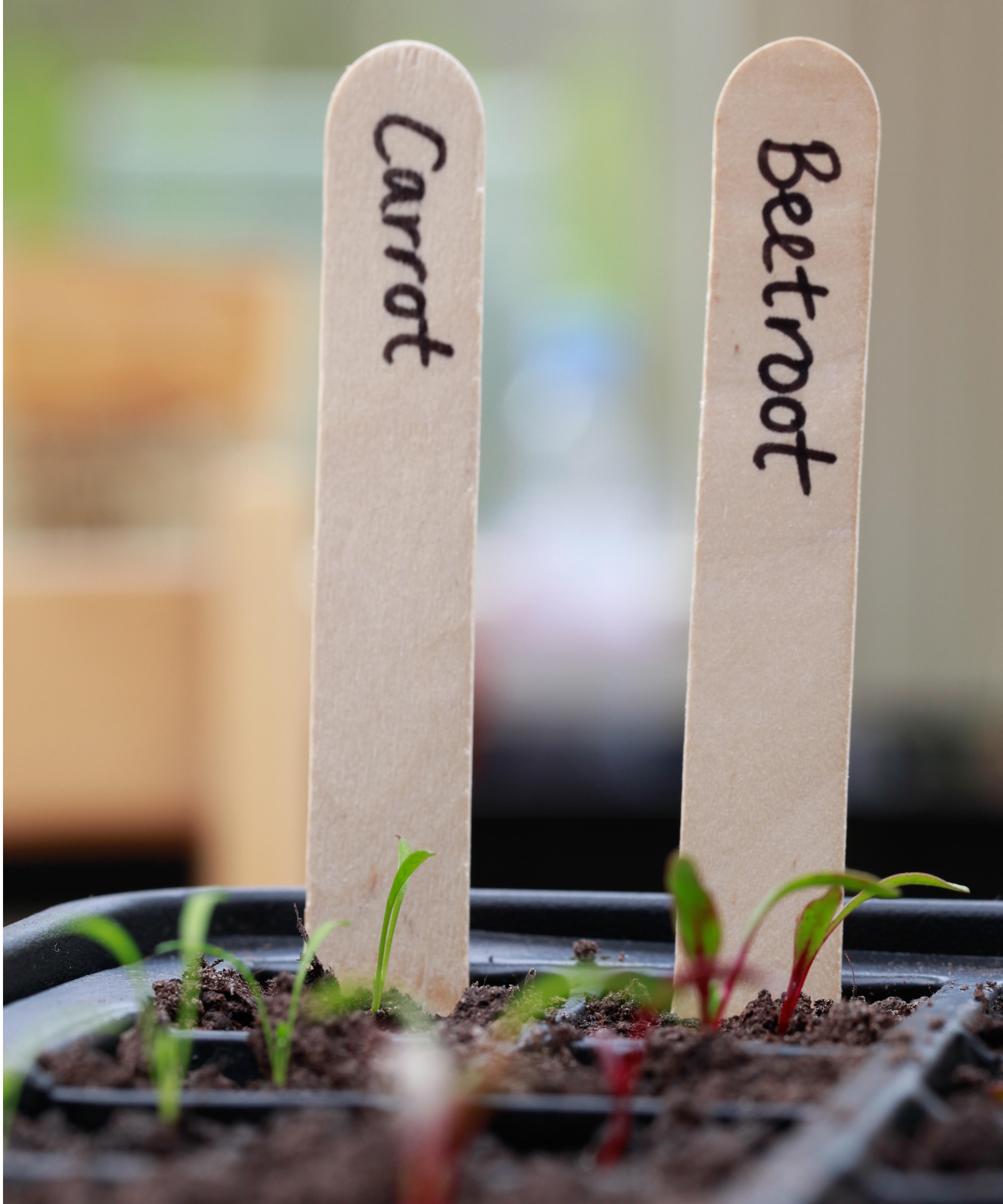
Often when you purchase plants from a nursery or garden center, they come with a plastic plant label and it can be tempting to keep hold of them because they come with all the information you need. But, having these plant labels inserted into soil creates the possibility of microplastics leaching in.
Instead, our Head of Gardens, Rachel Bull, recommends using wooden plant labels:
'Even excessive use of copper plant labels can lead to toxicity over a long time, although trace copper is an essential plant nutrient.' she says. 'I like to use wooden plant labels instead, a safe non-toxic option that also bring rustic charm to my seedings,' Rachel adds.
You can either purchase wooden plant labels - like these bamboo plant labels from Amazon - or choose to repurpose things like lollipop sticks to make your own.
2. Stainless steel garden hose
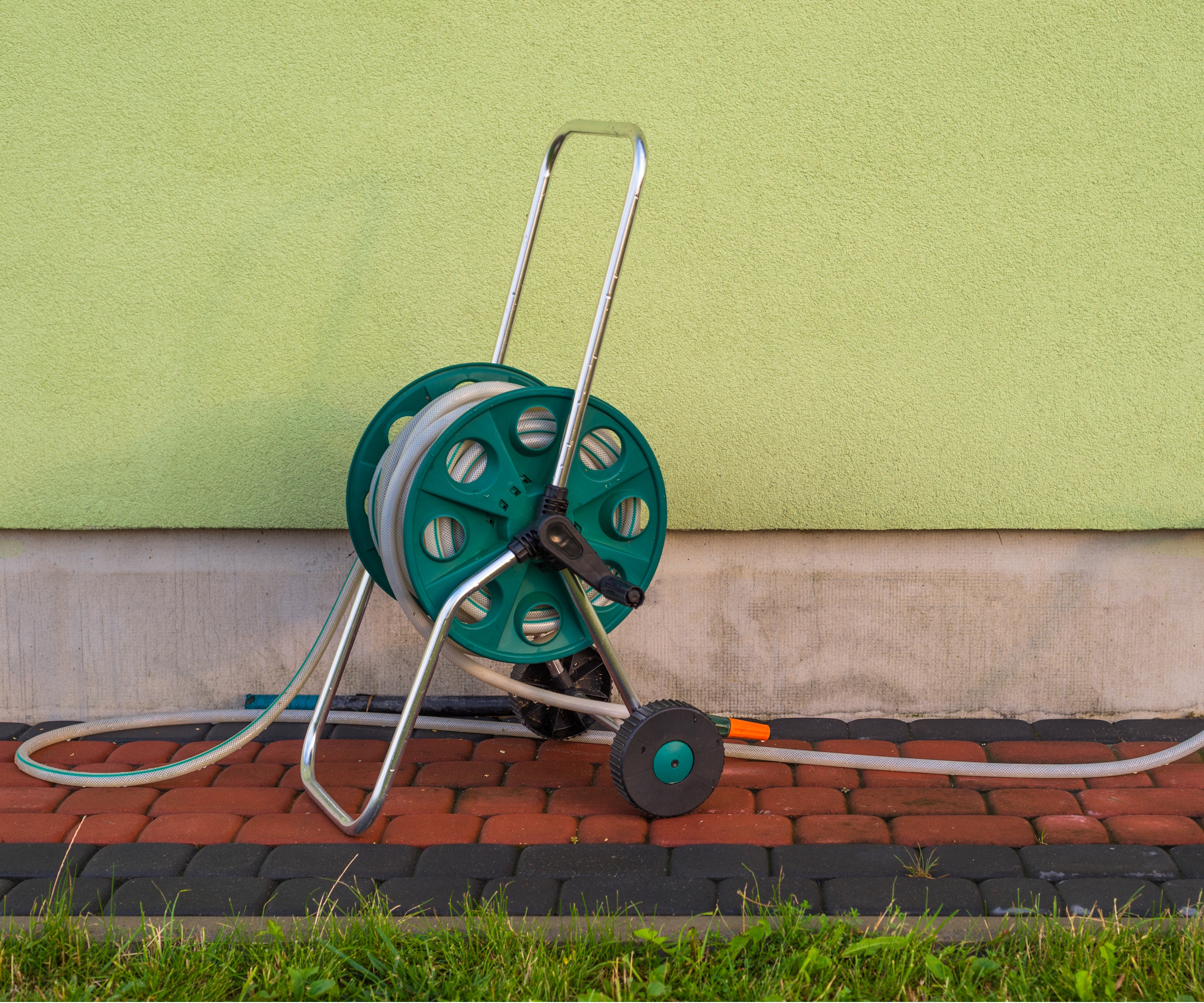
More often than not garden hoses are made from rubber and soft plastics. However, it is possible to make a non-toxic gardening swap with a stainless steel garden hose instead.
Stainless steel is a non-toxic home essential, considered safe for items such as cutlery and cooking appliances. For this reason, it's also a good option for a garden hose, not impacting soil health by passing on harmful chemicals through watering plants.
As a bonus, it's easy to maintain a garden hose of stainless steel, as they are corrosion-resistant. However, you should still take the time to store a garden hose properly to keep it in top shape and prevent rust.
This stainless steel garden hose from Walmart is even expandable.
3. Fabric grow bags
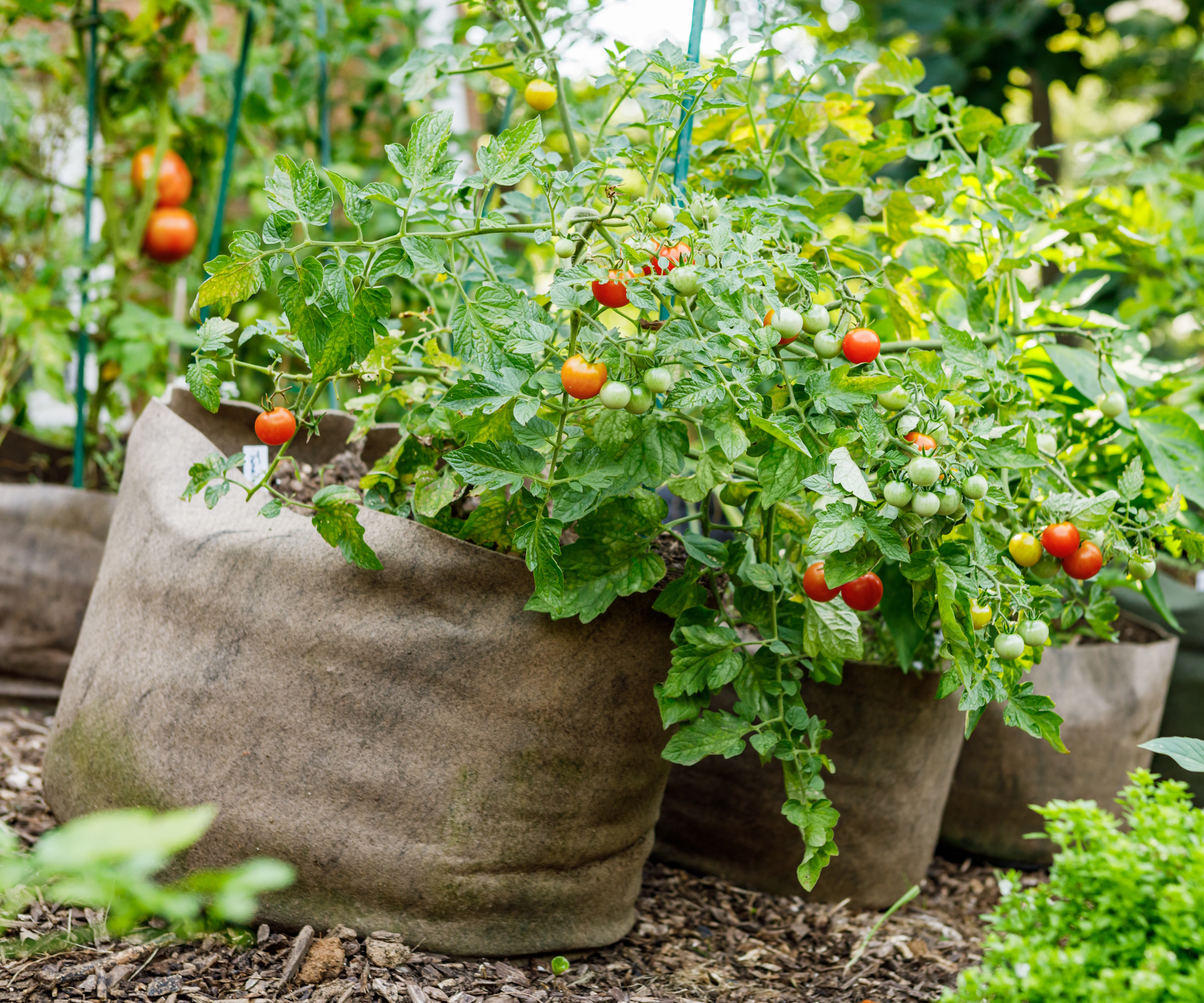
If you're a keen container garden grower or have a balcony garden, you might be familiar with using grow bags. They're a great solution to small-space gardening, and are often lightweight.
The one downside is they're usually made from fabrics that have plastics in them, like polypropylene. Instead, you can opt for jute or canvas grow bags, which Gardens Content Editor Thomas Rutter says work just as well:
'Eco-friendly options, made of hemp or jute (like these jute grow bags from Amazon), will avoid the risk of toxic materials leaching into your soil,' he says. 'While they are breathable and allow water is soak away, many will also prove to be durable, often lasting many years,' Thom adds.
4. Glass plant mister
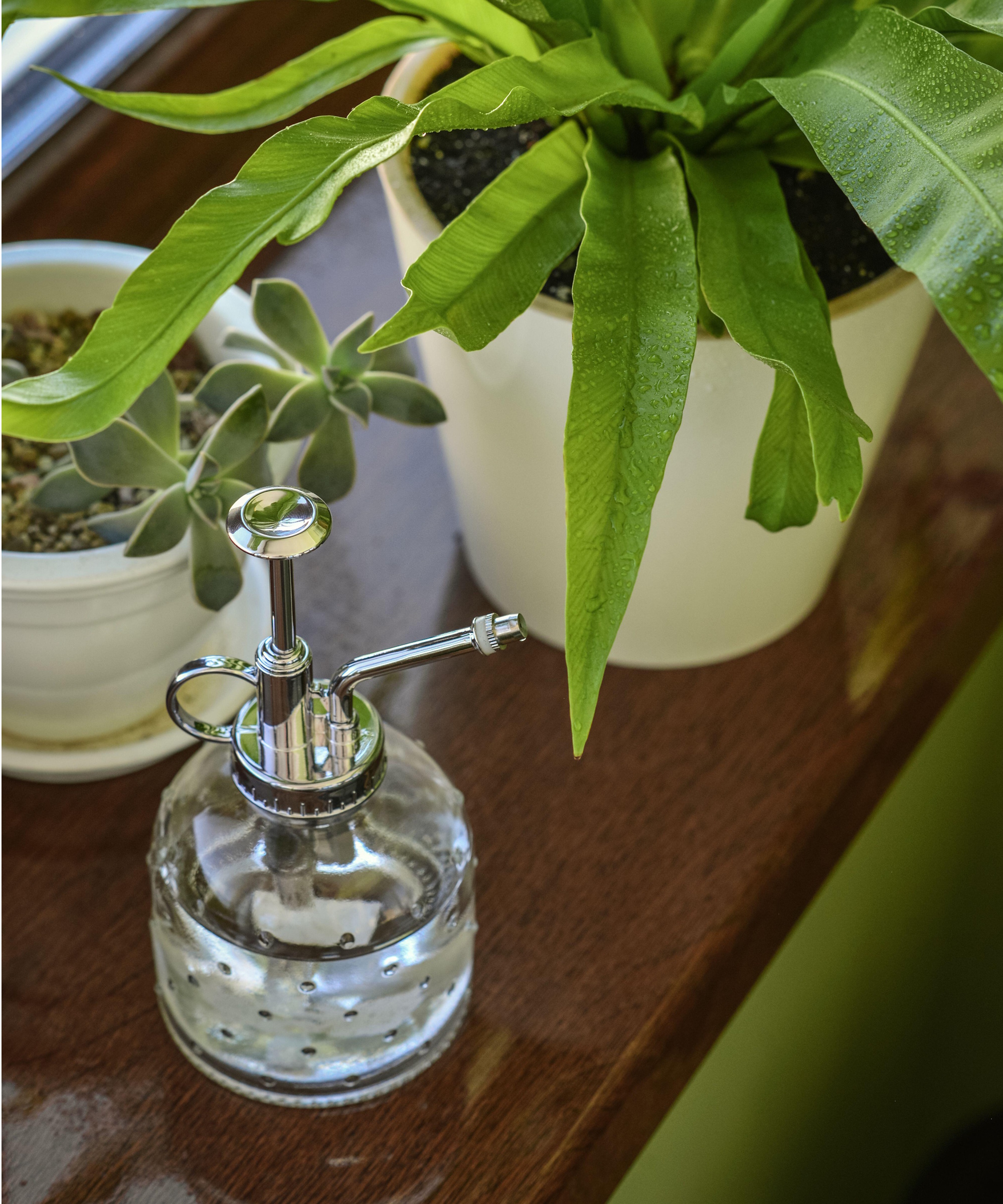
This is a non-toxic gardening swap for indoor gardeners and those growing the best tropical plants outdoors. Houseplants and garden plants that prefer higher humidity benefit from being misted, but there is some risk of using plastic spray bottles.
With a large collection of houseplants, I'm constantly misting around my home to increase humidity for indoor plants. The concern with using a plastic spray bottle? Spraying microplastics into the air to be inhaled.
Instead, I use a glass plant mister. Not only is it a safer material to use, but it also looks elegant sitting on my shelf between use.
It's best to go for clear glass - like this glass plant mister from Amazon - as tinted glass often contains toxic metal pigments.
5. Coconut coir mats
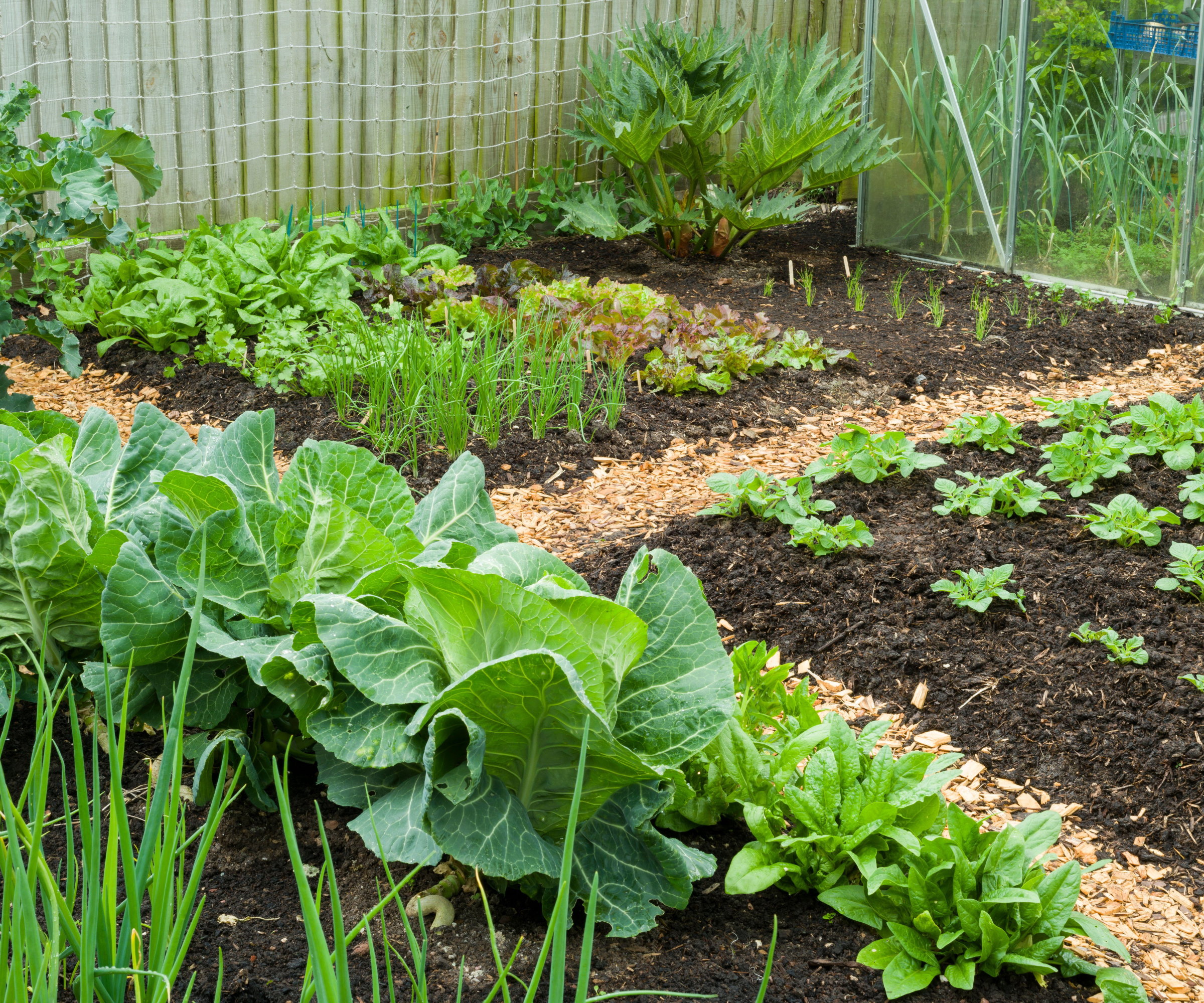
Whether you have a kitchen garden or a flourishing flower bed, it's likely you would have used landscaping fabric at some point to line beds.
Just like grow bags, landscaping fabrics often contain plastics from polypropylene, so it's best to find a non-toxic gardening swap.
'I recommend coconut coir mats,' says Gardens Content Editor Drew Swainston. 'Coir is made from coconut husks and is increasingly popular as a growing medium. You can also get eco-friendly rolls of coconut coir, like this on Amazon, that can be used to line garden beds or hanging baskets,' he explains.
Using coconut coir mats will help get rid of weeds by smothering them, and they'll break down over time, improving soil quality.
For an even more affordable option, you can repurpose plain, ink-free cardboard or burlap (from Amazon).
'I just recently used lots of recycled cardboard instead of plastic membrane in my new raised garden beds and they worked effectively, giving the same result as landscaping fabric,' says Rachel Bull.
6. Fiber plant pots
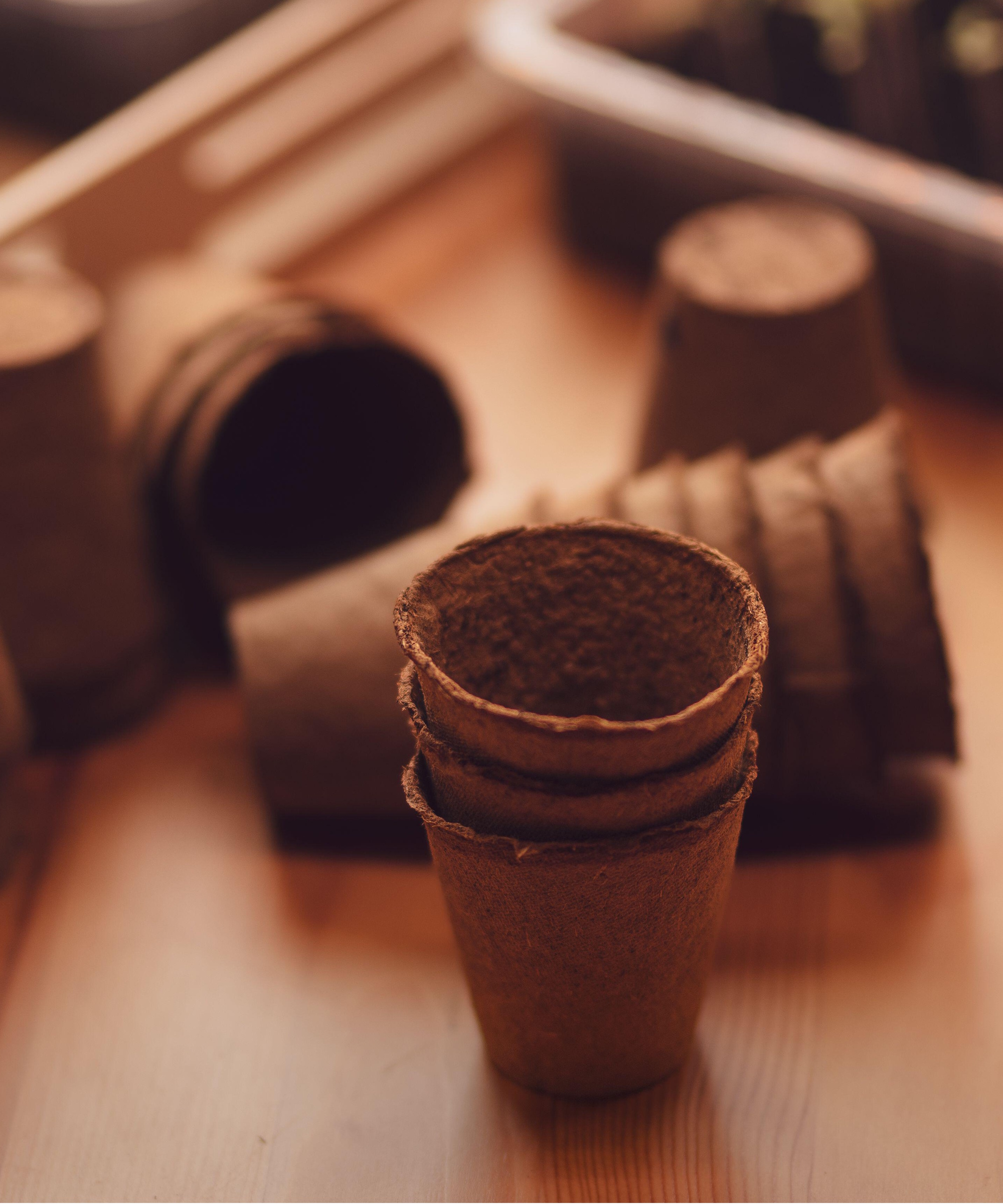
One of the easiest non-toxic garden essentials to get your hands on is fiber plant pots.
Instead of using the classic plastic nursery pots, this non-toxic gardening swap allows you to sow seeds outdoors without the risk of harmful chemicals leaching into seedling soil.
Fiber plant pots (from Walmart) are made from biodegradable materials, often meaning you can plant them directly rather than transplanting seedlings, avoiding risk of shocking plant roots.
They're also breathable and allow for good drainage, encouraging healthy seedling growth.
Other non-toxic gardening swaps for plastic nursery pots include making a DIY seed tray from things like plain egg cartons.
7. Glass cold frame and cloches
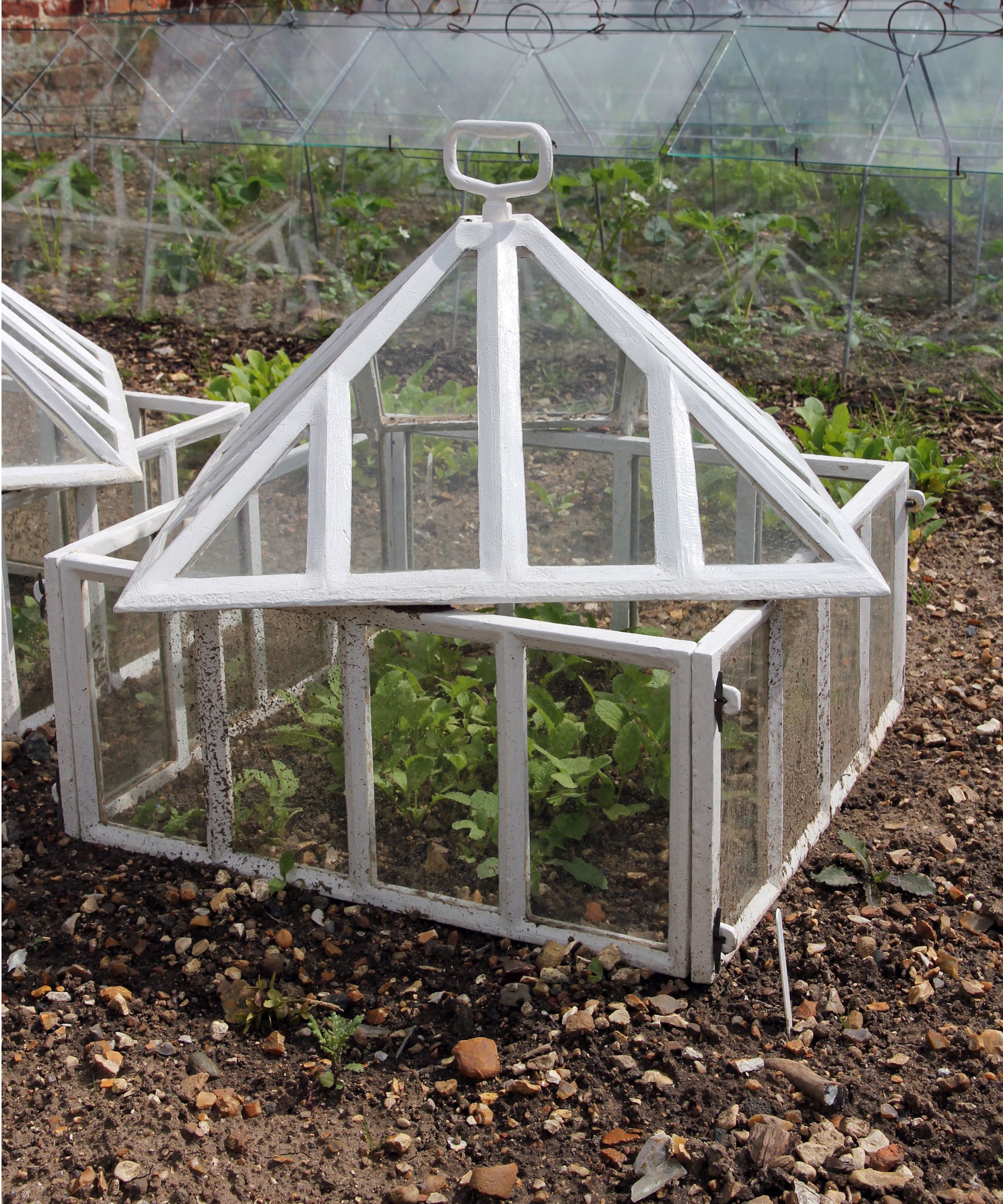
A perfect non-toxic gardening swap for plastic greenhouses is a glass cold frame or a glass cloche.
They both work the same as a greenhouse, but on a smaller scale, keeping plants warm and protected from pests and harsh weather conditions.
Glass is a much safer material to use for the area you're growing food, preventing harmful toxins leaching into soil and contaminating crops.
Likewise, wooden and brick cold frames are also a good option, so long as they use glass instead of plastic for the window features - like this walk-in wooden and glass cold frame from Amazon.
With so many styles available, you can get one that fits your space and aesthetic perfectly, like the Victorian-style glass cold frame pictured above or these bell glass cloches from Amazon.
Alternatively, and for a higher cost, you can install a large glasshouse to swap out a plastic greenhouse. This provides more room for growing in a secure, stable structure.
FAQs
What's a non-toxic pest control method?
There are lots of non-toxic pest control methods you can use to keep common garden pests away. This includes planting the best pest-repellent plants, using natural repellents like essential oils, or introducing beneficial nematodes, which are natural predators to many pests.
It isn't just the backyard you should be thinking about when aiming to make some non-toxic gardening swaps. There are also plenty of ways to make your home less toxic, including using the best non-toxic kitchen appliances to cook with.







